If you’re not a vegetarian or vegan, probably one of the most important decisions you can make for your Thanksgiving dinner is what kind of turkey you’re going to serve. Unfortunately many of the things we should know when buying our Thanksgiving turkeys have been hidden from us.
A while back I had the chance to speak with a former turkey farmer, George “Buddy” Black, about his poultry business. To help shed some light on the importance of understanding where our food comes from, I wanted to share that conversation with you, and George graciously agreed. So let’s talk turkey!
Q: George, tell me a little about how you got into the farming business?
A: I was adopted into a rural farming family in the fertile river valley of Arkansas. I was raised on a small to mid-sized farm where all aspects of life were observed—from birth to death and everything in between. Over the years our family farm grew to several hundred acres, and we raised corn, wheat, soybeans, and cattle. Only later did we add a contract poultry and commercial dairy milking operation.
Q: How did you end up farming turkeys?
A: As we grew our farm, poultry farming seemed like the perfect fit for us. At first we raised chickens thinking not only could we use the chicken manure as fertilizer for our crops, but also use poultry farming to provide another profit stream. In 1990 we switched from raising chickens to turkey—the chicken business had already become very competitive, and we thought raising turkeys would be more profitable.
Q: How big was your farm?
A: Originally we had three chicken barns that we converted. Then we built an additional six, state-of-the-art turkey barns. Although this left us in HUGE debt, we were producing a minimum of 250,000-300,000 turkeys a year.
Q: How was poultry farming different than other forms of farming you’ve done?
A: As a contract poultry farmer you really don’t have ANY flexibility in your operation. Let me explain a little.
As independent farmers who raised beef, dairy and row crops the freedom was all ours. We had the flexibility to grow what we wanted and invest in the spots where we saw greater profit margins. We had the opportunity to work with nature and build our lives and our children’s lives. We had more of an upper hand on our business and where we wanted to invest—so year to year that might mean planting more corn and less wheat, or to expand or shrink our dairy—growing as we deemed acceptable, how, where and when we wanted.
Contract poultry was none of this. Corporate supplied the birds, feed, medications, and veterinary expertise, and by contract they received a constant supply of birds that were predictable in size, weight, health and harvest percentages. In exchange the farm received free fertilizer (from the poultry manure) and a minimum pay scale per bird plus bonuses if feed conversion, mortality, grade-ability were above the industry set standards. Theoretically we had the “freedom” to run the business as we pleased, but corporate really controlled most the variables, and when you signed up, you were locked into that company for 5 years. It’s frightening to look back now and see just how bound we were to the corporate ways. Yikes!
Q: When did you first realize your move into turkey farming might be a mistake?
A: There were two realizations that we quickly came to. The first was the health of the turkeys. The birds were raised so confined, and they were miserable. This led to numerous outbreaks of disease and sickness—all which required lots of antibiotics and use of medications. And the birds weren’t the only ones getting ill—our family was getting sick frequently as well. In fact, I almost died from Histoplasmosis. [Histoplasmosis is a disease that can be fatal if left untreated and affects primarily the lungs. In the case of poultry farmers it’s caused by inhaling Histoplasma capsulatum, a fungus that’s commonly found in the soil as a result of decaying bird droppings.]
With all this disease we were constantly giving the birds 3-Nitro® (Roxarsone). This drug is an arsenic-based animal drug, something the big corporate bosses never disclosed to us growers. [To learn more about Roxarsone and arsenic in the poultry business, see the footnotes below.] I think you get the idea now. Shadowy games and complete lack of disclosure were the rules they played by—just to make a dollar at whatever or whoever’s cost!
On the business side the biggest wake-up call was the corporate mentality we were working with—or should I say against. I still remember the day the corporation bragged to all of us new growers (about 50+ of us) that they had paid off $20 million of debt in 3 years. It didn’t take us long to realize they were building their turkey empire on the backs of their contract farmers as each of us new growers was now over a million dollars in debt and not making much in terms of profit.
Q: What do you think everyone should know about meat produced by Big Ag?
A: Well, I can only speak from the viewpoint as a contract poultry farmer with one company. It’s pretty simple, though. Big Ag isn’t concerned about quality first. It’s all about mass production at a minimal cost. Nutrition, animal conditions, and your family’s welfare are all secondary to shareholder profits.
Q: Do you believe most poultry growing operations supplying Big Ag companies treat their flocks humanely?
A: I do. The conditions are very crowded which makes the birds very disease prone, but I don’t think there is outright abuse. I know there are a few bad apples out there, and they make it hard for the rest of us. Any true farmer who cares for his family, animals, and the land would not mistreat either. Ultimately it starts and ends with the grassroots farmer. If Big Ag wants birds mistreated then you [the farmer] have to make life-changing choices.
Q: Certainly Big Ag has been painted by many activists in a pretty negative light. Do you think that assessment is fair?
A: Yes, I do. Big Ag is out for the money pure and simple. What’s Big Ag’s side of the story? They let greed overtake the desire to make quality products. Their bottom line is all about quantity not quality, and maximizing profits. Look at food conditions in the 1920-30s compared to now. Today we’re experts in empty calories and poor nutrition.
Q: Do you think people should be asking more questions about where their meat comes from?
A: Absolutely! We need to start asking more questions about a lot of things—our schools, education system, doctors, and even where to go on vacation. People need to get more involved with their food and ask about where their meat came from and how it was raised.
Q: What ultimately made you decide you wanted to leave the poultry growing business?
A: My family had a real heart to heart about the animal welfare, health concerns, and overall pride (for lack of a better term) for what were we doing with our lives and resources. More importantly we were increasingly worried about how we were affecting people we didn’t even know. Today each farmer is responsible for feeding about 155 people. That’s a lot of responsibility, and I don’t take lightly.
Q: Has being a poultry farmer changed your approach to eating and how you shop for food?
A: Most definitely. We scrutinize everything. Where does it come from? How it’s made? When?—we now ask these questions about almost everything we touch. These days we mostly eat organic or locally farmed food.
Please join me in thanking George for sharing his candid thoughts. It certainly has given me a lot to think about!
Before I go I wanted to provide some additional information about feed additives/drugs to illustrate an important point. Federal law prohibits the use of hormones in poultry. I’m sure you’ve seen the claim “No Added Hormones” plastered on packages of chickens, turkeys, and deli meat, and it makes sense that these words might make us feel better. The sad truth is, while actual hormones may not be used, chemicals like Roxarsone and Ractopamine are approved by the FDA for use in turkey, and they promote weight gain just like growth hormones—they just aren’t technically a growth hormone. So while the claim may literally be true, I think most of us feel like we’ve been fooled. Pretty sneaky, huh? Yep—but that’s exactly how Big Food and Big Ag play this game … it’s all about profits and deception.
If you’re interested in learning more about these drugs and their use in the industrial turkey business, see the footnotes below. Also please keep your eyes open for my next post where I’ll discuss some healthier options than that factory-farmed bird and I’ll share my favorite roasted turkey recipe!
Finally, if you’re a former food industry insider (farmer, grocer, wholesale, marketer, advertiser, or whatever), and you’d like to share your story with me, contact me here and let’s talk! Together we can all help create positive change in this crazy food world. Everyone can be a part of that change, so please share this important interview with your family and friends.
Thanks!
Bruce
Footnotes:
Roxarsone:
- In the interview, George mentioned the use of Roxarsone. What is it? Well, it’s one of four FDA-approved arsenical (yes that means a form of arsenic is in it) feeding additives used in poultry and swine farming. These additives are used to enhance weight gain and fight parasites. While the makers of these chemicals have argued they’re safe since they use organic forms of arsenic [note: the use of the term organic is not the same as you might think of when discussing food. It is not meant to comment on the use of pesticides, human activity, or chemical treatment—rather it refers to the other metals and elements they are bound to the arsenic.] While these arsenic-containing additives don’t appear to harm the animals (at least in the short-term prior to their slaughter), research has demonstrated that increased levels of potentially carcinogenic, inorganic arsenic have been observed in the meat of these animals. Furthermore, the manure of these animals also appears to contain inorganic arsenic, and when it’s used as fertilizer, it’s not only absorbed by some crops, but it also gets into the groundwater we drink.
- Since the time when this controversy surfaced Pfizer has decided to voluntarily stop marketing Roxarsone in the USA, and it’s now in the process of spinning off Roxarsone production in a subsidiary called Zoetis. It should be noted that the FDA has not withdrawn approval of arsenic-containing feeding additives, and Pfizer still manufactures and ships Roxarsone overseas. Who knows if it will start re-appearing in the United States when some of this scrutiny dies down. That’s why it so important we all get informed and demand better!
- The USDA organic program prohibits the use of arsenical products in organic chicken production, so this is one way to try to further avoid this chemical. Unfortunately, Roxarsone and other arsenical feeding additives are just another sad example of how Big Ag quest for profits has potentially jeopardized our health and environment in the process.
- If you’d like to learn more about Roxarsone, arsenic, and their impact on our food and environment here are some additional readings:
Ractopamine:
- Although George didn’t mention Ractopamine in our interview, it’s been in the news lately so I thought I’d mention it. This is another drug that is routinely fed to turkeys, pigs, and cattle. Ractopamine is a beta-agonist, and it mimics stress hormones to increase the rate animals build muscle. It’s fed during the final weeks prior to slaughter to increase weight gain. The impact of residual Ractopamine on humans is being called into question, and several nonprofits are suing the FDA. Again, this looks like another example where corporate profits have been prioritized over food safety.
- Ractopine is marketed under several different names depending on the animals being treated (Paylean for pigs, Optaflexx for cattle, and Topmax for turkeys).
- If you’re interested in learning more, here’s an article from Food Safety News entitled, “Nonprofits Sue FDA Claiming Agency Hasn’t Proven Safety of Animal Growth Drug.”
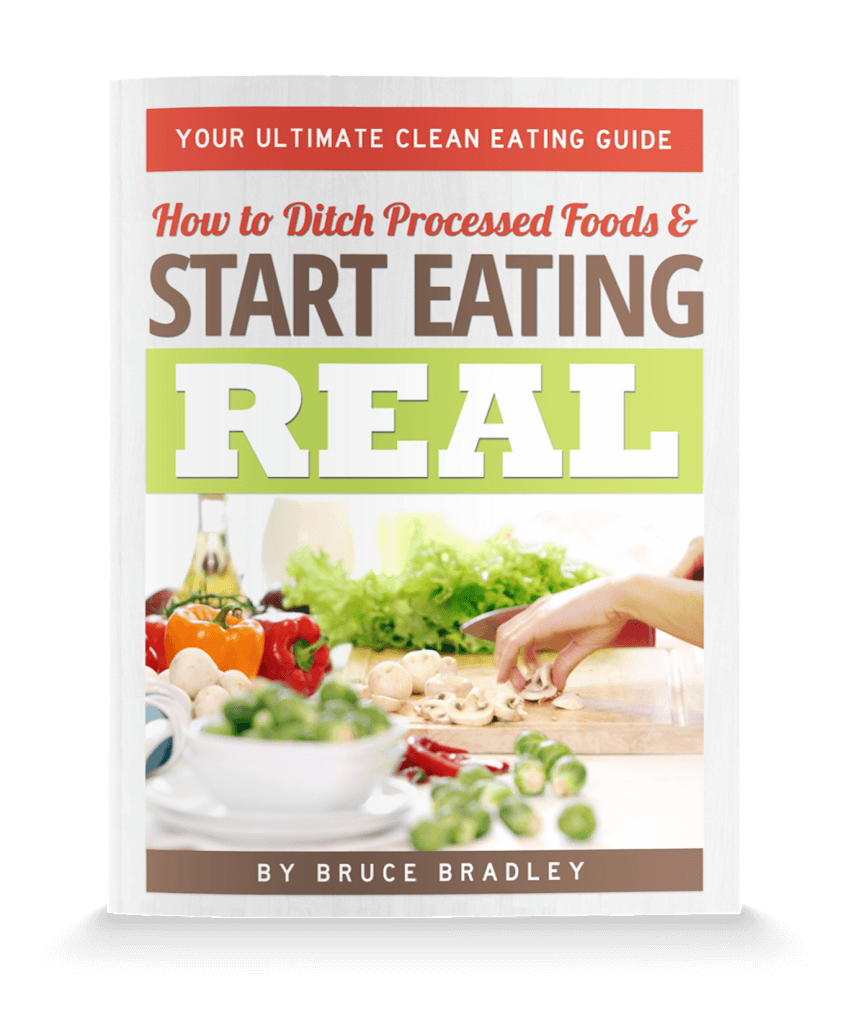
GET MY FREE BOOK NOW!
End the confusion! Learn what’s really in your food and how to take simple steps toward eating healthier!
EAT HEALTHIER TONIGHT!
If you enjoyed this article or recipe may I ask you a favor? Please share it with a friend. Why? Because together we can make a difference and help each other live happier and healthier lives. Thank you!
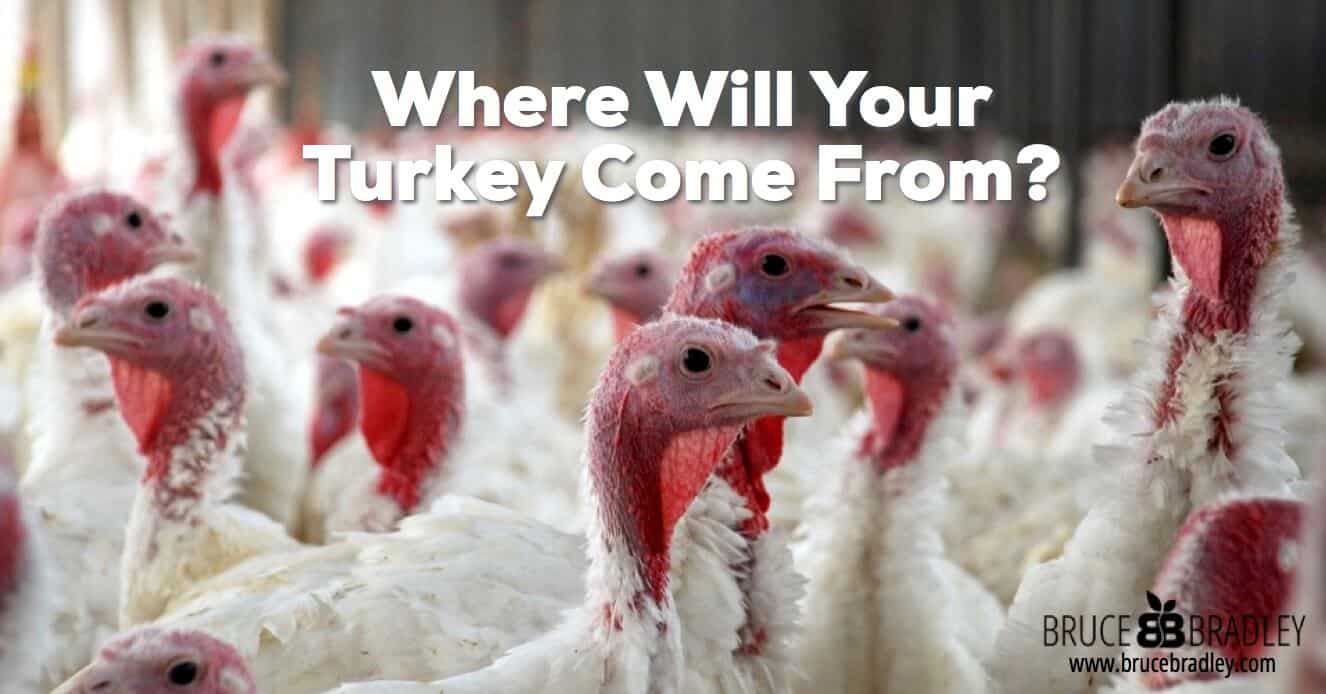
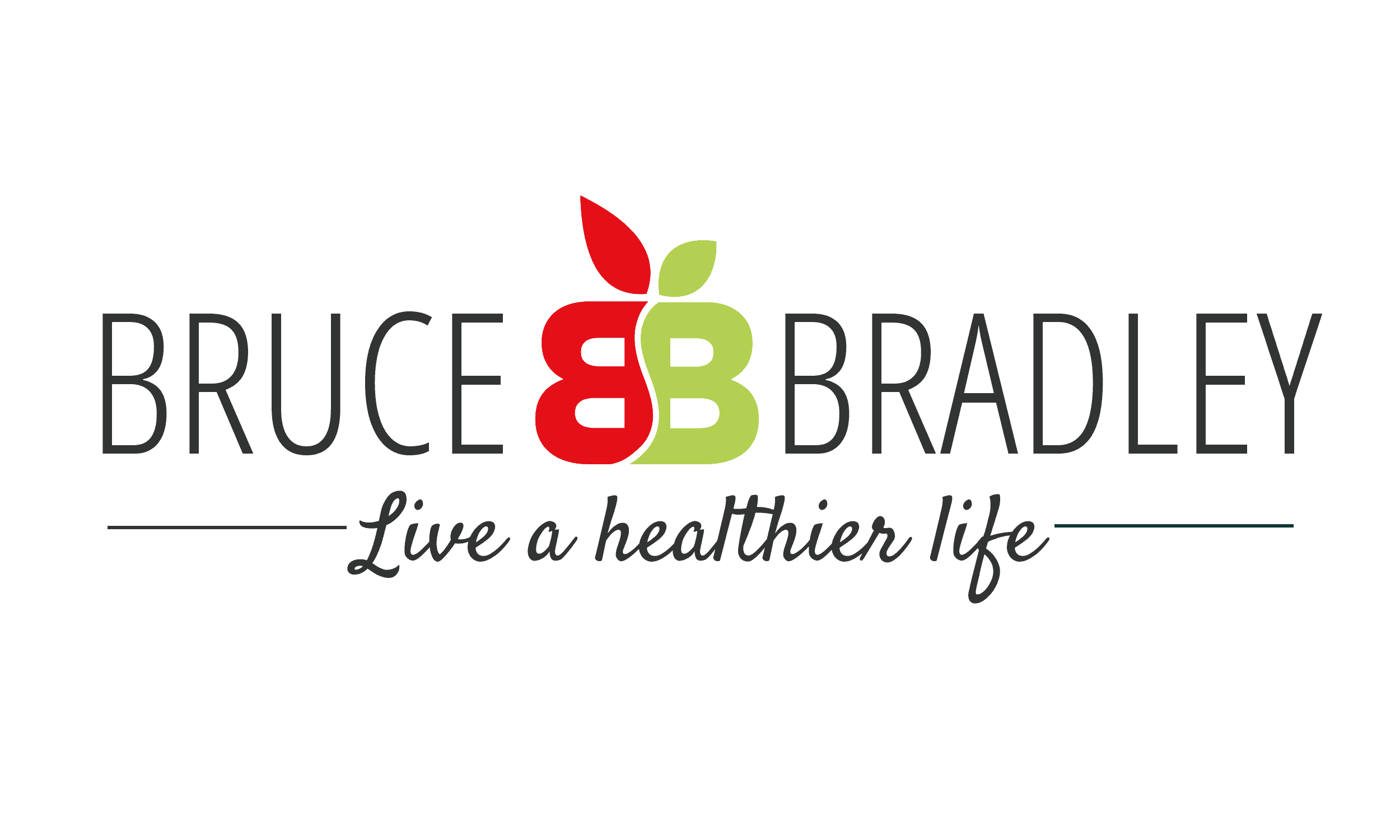
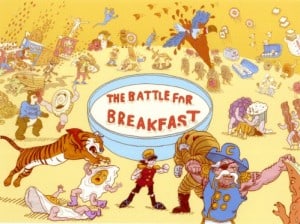

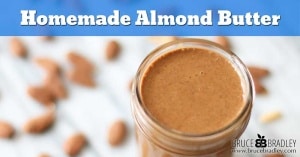
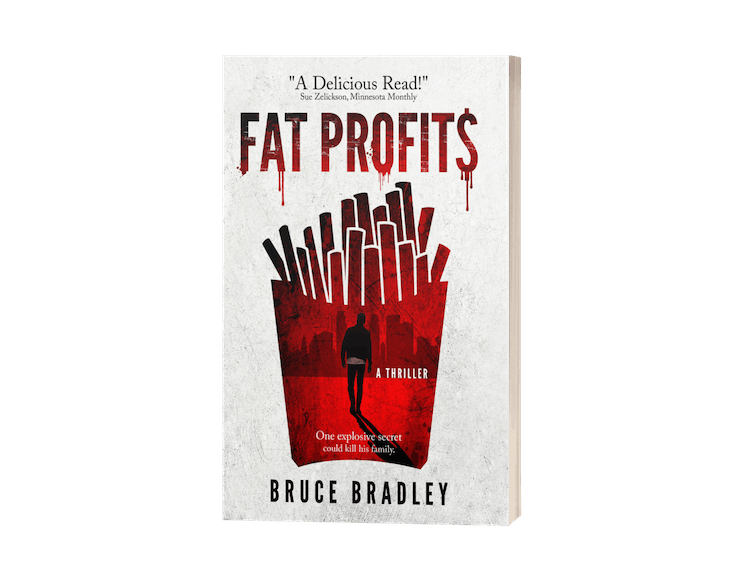
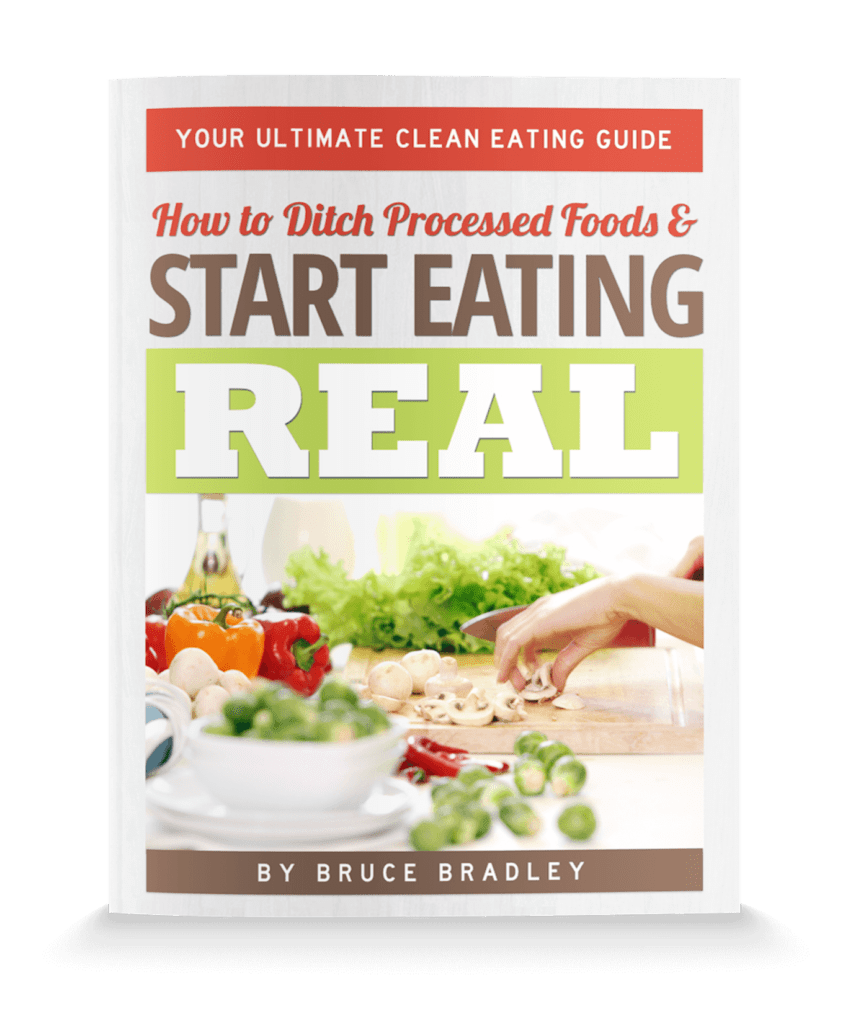
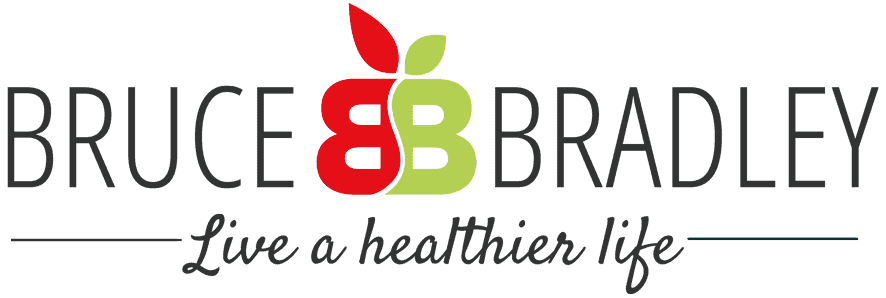
3 Responses
I would like more information on the process for breeding turkeys. I have heard some horrible things about how they are impregnated to make larger turkeys. Can you give me some information on this subject?
Rose:
I’ll do my best to find the answer to you question! Thanks!
Bruce
Thank you for bringing these things to light. I appreciate you sharing the truth behind the food that most people (at least most Americans) are consuming. I don’t know when people will finally decide to wake up (hopefully before the number of children sick and dying of things like diabetes and cancer grows). Do you know of Robyn O’Brien’s work? She’s another person I admire who is making a real difference in the world of food. (http://www.robynobrien.com/) Thanks again for all you do!
~Karen